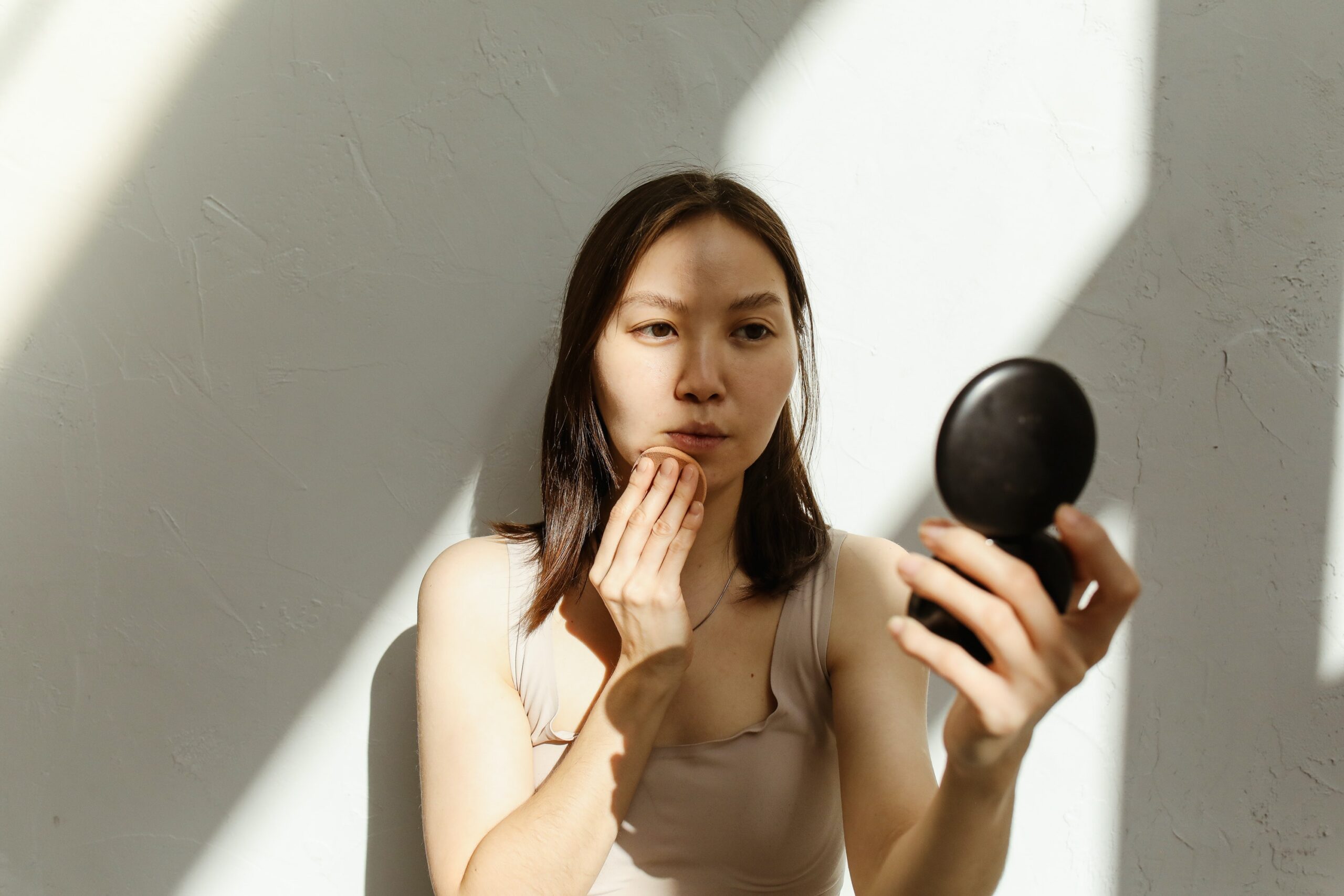How To Deal With Body Dysmorphia BDD
- Have you heard of Body Dysmorphia (BDD)?
- Is there a part of your body that upsets you a lot?
- Do you find yourself thinking about this body part constantly during the day?
- Do you spend excessive time trying to hide or do surgery on a “flawed” body part?
If you answered yes to any of these questions, Mind Connections wants to offer you support and more insight into what you may be going through. This article will answer all the questions you have about Body Dysmorphia!
What is Body Dysmorphia (BDD)?
Someone who has body dysmorphia (BDD) is very concerned about a certain body part/feature. The person finds themselves thinking about this body part(s) constantly throughout each day and often experiences distress. The sufferer of BDD looks at this body part as a flaw or something to be embarrassed about. What causes Body Dysmorphia remains unknown; however, its influences can include the pressure of societal beauty standards, critical/abusive parents, and low self-esteem.
Here is an example: a girl named Lily fears that her nose is too big. She obsesses over this feature and eventually develops shame. Lily’s parents are also very hard on her – as a result, she worries a lot about how others perceive her and her “flaws.”
What body parts do people with BDD obsess over?
Someone can become distressed over any part of their body. People can also have BDD for multiple physical features. Common features people worry over are:
- Nose size
- Skin blemishes or texture
- Hair loss
- Body shape and size
It is important to note that people can develop BDD over any feature/part of their body. It may seem insignificant or minimal to other people, but your feelings are valid, always! Body dysmorphia may happen to both women and men. For example, a preoccupation with your body build being too small or not muscular enough (muscle dysmorphia) occurs almost exclusively in males.
Common thoughts someone with Body Dysmorphia may have:
- “Everyone is looking at my nose, I am so embarrassed.”
- “My skin looks terrible, I need to make sure my makeup is covering it.”
- “I can’t go to the beach. My stomach is too big, I feel self-conscious.”
- “Everyone can see my bald spot. I should put a hat on.”
- “I hate my nose. It makes me so angry – I wish I could get surgery to fix it.”
Do I have Body Dysmorphia?
With this in mind, many people who have BDD take part in repetitive actions to cope. According to researchers, typical symptoms of Body Dysmorphia may include:
- Looking in the mirror often
- Perfecting their look and constantly tweaking it
- Wanting validation from others
- Comparing themselves to others
Lily finds herself pulling out her compact mirror often – she spends hours looking at her nose from every possible angle. Additionally, Lily touches up the makeup on her nose and ensures that her contour looks just right.
Social media causes Lily to compare herself to others. She follows girls and compares her nose to theirs. Filters from apps make her nose look different and she wonders how she would look after getting cosmetic surgery.
Body dysmorphia can cause someone to feel shame and embarrassment- these harmful feelings can even cause people to miss opportunities in life. Lily’s BDD prevents her from posting certain pictures/videos where she think nose looks bad or leaving the house without makeup.
What risks come with Body Dysmorphia?
Body dysmorphia can cause great harm in people’s lives. For one thing, it is a very time consuming disorder. People who have BDD spend so much time obsessing and worrying about their features, that it can affect their day-to-day life. Research shows that BDD can cause people to miss out on work, school, or other functions. People who have BDD can often find themselves experiencing depression, anxiety, OCD, and substance abuse, as well. In serious cases, BDD can lead to increased suicidal risks.
Additionally, the personal relationships of people with BDD can be affected by this disorder. Many people with this disorder have reported feeling significant anger. This disorder is not easy to deal with – the person with BDD may feel like they want to lash out at others and get upset if they think someones is making fun of them.
When someone struggles with anger, it is hard for them to control their emotions. Someone with BDD may feel angry for having to deal with so much distress. To learn ways of managing anger, you can read more here.
How are Body Dysmorphia BDD and OCD related?
Learning about BDD may remind you about Obsessive Compulsive Disorder (OCD).
OCD is a disorder that causes someone to have thoughts that are intrusive and repetitive. These thoughts can make someone very uncomfortable because they are unwanted. These repetitive, undesirable thoughts make up the “obsession” part of OCD. In order to try and put an end to these obsessions, the person will engage in certain actions repetitively – this is the “compulsion” part of OCD.
Both disorders share similar influences. Many people who develop either OCD and BDD have family members with the same disorder. People who develop OCD or BDD may also have went through traumatic events like abuse in their past.
OCD, like BDD, impacts someone’s daily life and overall well-being. Both disorders cause someone to constantly think about something and repeat certain tasks.
How are Body Dysmorphia and Social Phobia related?
Social phobia, like BDD, is draining. Social phobia makes a person persistently fearful and vigilant. In other words, someone with social phobia will continually assess a situation and fear that a terrible outcome will take place.
People with social phobia fear being laughed at and dislike being in the spotlight. People with BDD are highly fixated on their features and worry about others judging them. Due to these disorders, someone with BDD or social phobia may avoid situations or miss out on events completely.
Social anxiety sufferers can become withdrawn and develop low self-esteem. Similarly, people with BDD usually have decreased self-esteem, as well.
How to Deal with Body Dysmorphia
First, Know that Whatever You Feel is Valid
No matter what you have BDD over, know that your feelings are valid. Someone may have similar features to you and not have any anxiety or worry over it. Remember that we all are different people on different journeys in life. The way you feel is not exactly the same as anyone else. Your concerns are important and you deserve to receive help and support.
Second, Consider Therapy

As mentioned before, BDD can lead to serious consequences if left untreated, like suicide ideation. The chance for major distress and suicidal risks show how vital treatment is for BDD.
Cognitive Behavioral Therapy (CBT)
People with BDD can benefit from Cognitive Behavioral Therapy (CBT). CBT helps clients alter and change their negative-automatic thoughts. CBT could help people with BDD stop their constant rumination and repetitive actions.
Exposure and Mindful-Based Therapy
If you struggle with OCD or social phobia, therapy is very important for recovery, as well. People who have social phobia can benefit from CBT, as well as Mindfulness-based therapy and Exposure Therapy (ERP).
ERP is highly effective when treating OCD. It is a type of Cognitive Behavioral Therapy (CBT). When people have OCD, they try their best to avoid the unsettling thoughts or obsessions by doing compulsions. Exposure therapy helps people face these fears head on, face-to-face. ERP helps someone with OCD realize that they can survive a horrible thought without having to complete a ritual or behavior to fix it. They will also see that they can safely get through life without relying on their compulsions. For social phobia, ERP compels people to face situations they fear and show them that they can get through it.
Try to Work on Potential Influences
Since things like low self-esteem can influence developing BDD, it may also be beneficial to receive support for this, too. Low self-esteem makes you feel worthless. It can reduce your quality of life in many different ways. Constant self-criticism can lead to depression, anxiety, anger, shame, body image problems, and relationship difficulties. Our therapists at Mind Connections offer effective therapy for clients to boost self-esteem, increase positive self-talk, gain more confidence, and stop putting themselves down as much.
Third, Practice Positive Self-Talk
Since body dysmorphia causes someone to obsess over and resent certain features/body parts, positive self-talk appears hard to accomplish. You deserve to treat your body with care and respect- this includes maintaining a healthy and loving self-view.
Try these positive “I” statements:
I am…
- loved.
- perfect the way I am made.
- enough.
- not defined by my imperfections.
- confident.
- worthy of respect.
Fourth, Practice Mindfulness
Mindfulness helps people focus on and exist in the present moment. When someone has BDD, it is extremely hard to focus on anything except the feature/body part they are fixated on. Mindfulness practices can help the person detach from their constant rumination and find peace in the present.
Mindfulness practices can be:
- Going on a mindful walk – someone goes on a walk and engages all of their senses. For example, they listen to the birds, look at the grass blow in the wind, etc.
- Mindfulness meditation – this mediation practice will help someone with BDD quiet their mind and release control
- Focus on breathing – one breathing exercise is the 4-7-8 Breathing Exercise.
As mentioned in our “5 Ways To Stop A Panic Attack Before It Happens” article, his exercise is simple to do and easy to remember. If you ever get confused, look at the numbers in the title!
Begin by, breathing out fully. Then, breathe in through your nose for 4 seconds. Next, hold that breathe for 7 seconds. Finally, release that breathe for 8 seconds.
Remember that…
You deserve to have inner peace and not face major stress over certain parts of your body. Every part of you is special and unique in its own way and deserves to be celebrated, not hated.
Lily should know that her nose is amazing the way it is! There is no “perfect nose.” Each nose is different and, in time, her BDD will hopefully get better!
We wish you the best on your self-love journey, and provide support for anything mentioned in this article: depression, anxiety, self-esteem issues, anger-management issues, etc. Call for a free 15-minutes to learn more!
Content Creator, Victoria Gallo; Reviewed by Dr. June Cao






Appreciate this
Body dysmorphia, have struggled with this for years. It’s painful. went through multiple surgeries